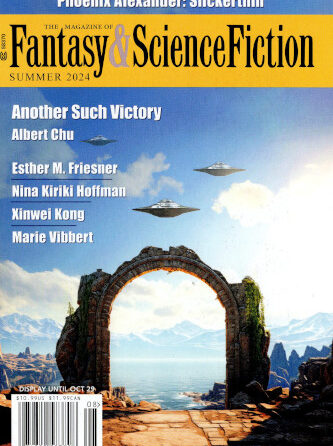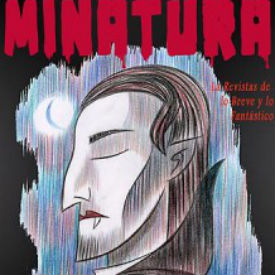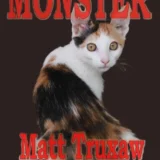
OBIR: Occasional Biased and Ignorant Reviews reflecting this reader’s opinion.

Alchemy and Artifacts: Tesseracts 22
Published by Edge-Lite, an imprint of Hades Publications, Inc., Calgary, Alberta, Canada, in 2019.
Edited by Lorina Stephens and Susan MacGregor.
The essential idea behind this anthology is to isolate an artifact from history and weave a “What if?” story around it.
Cleaning House in Ithaca by Leslie Brown
Premise:
Odysseus had an adventurous life they say, till he returned home to Ithaca and his wife Penelope. His older son was a bit of a pain, he had suspicions about his younger son, and now his mother-in-law was moving in and he has to get rid of his Trojan souvenirs to make way for her. What was the point of being a hero to be treated like this by his own family?
Review:
To this day historians argue over the true nature of the Trojan Horse. This story offers a unique explanation fully in keeping with the Homeric vision of the relationship between Man and Gods. Very inventive and original, yet fits right in with tradition. Great story.
Caligua’s Eagle by Tony Pi
Premise:
That Caligula thought himself a God was bad enough. Capturing an immortal Eagle sacred to Jove in order to eat it alive was bound to cause trouble. How to make amends?
Review:
Any story including Seneca, the Emperor Claudius, and Pliny the Elder as the main characters makes my day. A judicious bit of historical rewriting to set up the premise is okay by me. And the method of appeasing the God is certainly audacious. But the ending, while perfect classical in its implications, affording a moral lesson which was always the motivation of Roman historians (“Screw objectivity!” their motto), somehow misses the mark for me. I am faintly disappointed. Not sure why. However, the real Claudius would have accepted it. His whole life was like that.
Blood, Lead, and Torchlight by Cat McDonald
Premise:
Aquila works in the Library of Alexandria, copying books seized from visiting ships. Rumours abound that the defeated Roman General Pompey the Great will seek refuge in the city. This could bring the Roman civil war to the threshold of the city, could threaten the existence of the library itself. Perhaps a certain treatise on magic, properly evoked, will prevent disaster.
Review:
Yes, I’m one of those people who is still bugged over the loss of the Library of Alexandria. This story offers two things, an alternate explanation for what happened, and another reminder the Fates don’t like being interfered with. A clever story faithful to belief system of the day and kudos for that. Unfortunately, it makes me feel the loss of the library even more keenly. Sigh.
The Guardian of Wisdom by Mary-Jean Harris
Premise:
Aristotle is one of Alexander’s teachers. To make a point about the origin of myths he tells his eager student the Egyptian legend of the Heart of Wisdom. As usual, he underestimates his pupil’s ambitions. Thirteen years later Alexander the Great brings Aristotle to Egypt to help him search for the Heart of Wisdom.
Review:
Uneasy is the task of serving an imperial master. To preserve your own skin you must serve him well, but if you aid him in achieving absolute power you and everything you cherish could well be destroyed. Yet if you refuse, you die. Is a middle way even possible?
By a Thread by Geoff Gander and Fiona Plunkett
Premise:
Vikings vs. Skraelings in Vinland. One battle, between warriors, takes place on a hill top. The other, more important battle, is fought in the spirit world.
Review:
Though a fantasy, this story brings an obscure historical event vividly to life in terms of motivation and what’s at stake. Given the premise, the resolution is a credible and satisfying explanation of what actually happened.
Mirror of Alchemy by Katherine Cameron
Premise:
Englishman John Dee is a priest, an alchemist, and an astrologer. He casts a horoscope which implies Elizabeth will be Queen. Unfortunately for Dee, the year is 1555 and Queen Mary does not approve.
Review:
Dee was quite the character in real life. He lived in an age when dabbling in magic, and especially astrology, could get you burned at the stake as a heretic and traitor. In this story we see his activities through the eyes of Mistress Constable, who turns out to be naturally receptive to his teachings. I dislike astrology, but was successfully drawn into the mindset of the characters and wound up rooting for both of them.
The Inland Beacon by Kate Hartfield
Premise:
In 1588 Susanna and her son keep watch, ready to light the beacon on the hill if they see distant beacons signalling the appearance of the Spanish Armada. More than the fate of the nation is at stake, for their family has served the great beacon for many generations long before the current kingdoms came to be.
Review:
Turns out this particular beacon has more than one purpose. I rather like the author combining a famous one-time event with centuries of ancient tradition. Makes for an innovative take on what has become a historical cliché. Definitely an original approach.
The Witch of Glencoe by Bev Geddes
Premise:
The witch Corrag found refuge with the McDonald clan in the valley of Glencoe. She rewards them with her skill as midwife and other tasks. Unfortunately, she has the power of Seeing, and her vision of the intent behind the billeting of King William’s redcoats puts her and the clan in peril.
Review:
The Glencoe massacre is much celebrated, if that is the word, in Scottish lore. To this day the Campbells, who joined the redcoats in the killing, are not entirely forgiven. But there is another, rather mystical legacy which this story addresses through the character of Corrag, a witch known to be living in Glencoe at the time. Some say this folk belief is genuine, though others think it mere coincidence. Either way, the telling reveals the spirit of the glen, so to speak.
Winged by Michal Wojcik
Premise:
AndrzeJ is a lad accustomed to spending quiet evenings sitting by the lakeshore with the Polish equivalent of a Kelpie or water spirit. Possibly they love each other. She never speaks so he’s not sure. His unusual habit is noted, resulting in his being selected to join the Winged Hussars, a legendary troop of cavalry who wear colossal wings on the back of their uniforms to intimidate and terrify their battlefield opponents.
Review:
A wonderful what if fantasy, though with supernatural power comes great responsibility and entirely too much maturity. The future of the Winged Hussars, and that of Andrzej in particular, is rather sad, but it can’t be helped, for the old knowledge is waning.
Saddle and Snake by R.W. Hodgson
Premise:
Two Vaqueros on a cattle drive lose their horses and must walk through the desert to seek help. They have limited water, yet one of them insists on carrying his heavy heirloom saddle and his staggering pace slows them down. To make matters worse, a giant Rattler is stalking them.
Review:
I suppose irrational fears born of the environment combined with imagination produces many of the tall tales of the old west. Probably not uncommon, given the intense heat and rugged terrain, to develop the feeling natural forces are out to get you. Add heat-stroke induced hallucinations and all manner of weirdness seems credible. In this story one of the difficulties is the problem of separating false visions from the genuine supernatural, and what makes it particularly interesting is that more than one mystical element is involved. I’m not a huge fan of cowboy stuff but this story held my interest. Made me thirsty, too.
Joint-Eaters by Halli Lilburn
Premise:
The creatures of the title are malevolent fairies who function like tape worms. Da starves the more he eats. To make matters worse, the potato crop has failed across Ireland, which is why the fairies, normally held off by the potatoes, have taken to his stomach. Siobhan wants to save his father, but how?
Review:
I knew that potatoes became the principle staple of the Irish and when the blight destroyed the crop several years running more than a million people died in the resulting famine. That the lack of potatoes was responsible makes sense, but that the bulk of the deaths were caused by an infestation of fairies spawned by the lack of potatoes is a startling complication which nevertheless rings true in terms of Irish spiritual lore. A bold new horror concept. Nice to see the resolution depends on a further dose of traditional beliefs.
Lady Jordan by Bianca Sayan
Premise:
Mr. Caudle is a bounty-hunter who makes a good living capturing escaped slaves attempting to flee to Canada. Of course he does, for he makes excellent use of the Arbeit techniques his German mother taught him. In his profession witchcraft is a huge advantage. Lately, though, his hunt has been barren. Almost as if someone with equal or better knowledge is counteracting his spell works.
Review:
Imagine the fear accompanying each and every escaped slave attempting to work their way north to safety. Slavery might be illegal in certain Northern States, but bounty-hunters capturing runaway property were perfectly legal, and many of them highly experienced and thoroughly professional. All the more chilling that one would be armed with supernatural abilities. Adds a special frisson of horror to this powerful tale.
Things Better Left Buried by Chris Patrick Carolan
Premise:
In 1880s Nova Scotia a dinosaur walks the streets of Halifax. Inspector Jonathan Eddings, of the city Constabulary, is stumped. Where did the darn thing come from? And will any more show up? Even more annoying, Isaac Barrow, the technomancer spellcaster on staff, hasn’t anything useful to contribute to solving the conundrum. The public may be in danger.
Review:
A delightful story reminiscent of the mindset of Conan Doyle’s Lost World, with just a faint touch of his Sherlock Holmes character added. The Victorian era was one of the worst history has to offer, yet makes for a false splendid nostalgia, much like that of the 1950s for old folks like me. The addition of self-centred entitlement on the part of certain minor characters aids the credibility of the premise. I enjoyed it, but then I’ve always appreciated dinosaurs and Victorian cleverness and find the combination irresistible.
Phlogiston’s Rainbow by Eric Jon Spigel
Premise:
Heaven was disbanded in 1882. With nowhere else to go, the angels and demons come to live on Earth. Uriel is one such angel. His wings, normally bound and disguised as a hump on his back, cause him no end of pain. Fortunately, he knows a good acupuncturist. Unfortunately, the demons are up to their old tricks.
Review:
It pays to read this story slowly and carefully because it is dense with the characters and theories of the day. Science and the supernatural are blended such that each is merely the reflection of the other, though the established opinions about both appear to be on the cusp of dramatic change. Among other original concepts the story explains the necessity of Bram Stoker’s writing “Dracula” and what the real Mina was up to. Most remarkable of all, the entire story is a set-up to justify a certain minor tourist attraction, but in so doing demonstrates that the mythology of belief underlying reality is not necessarily what we assume. A wonderfully ingenious tale.
The Horn of Winter by Jason Lane
Premise:
Anya resents the loss of her Czarist past, the murder of her parents by the Reds, the loss of pleasant sleigh rides and palace balls filled with motion and music. Now she’s stuck on a crowded refugee train hounded by a Stuka. She resents the fact the dive bomber is after her and not the train, that the Germans know where she’s going and intend to prevent her from accomplishing her mission. Most of all she resents the mission when what she really wants to do is return to the happiness of her youth.
Review:
We know that operation Barbarossa ultimately ended in total failure. We even know why. This story offers an alternate explanation, or rather, a more detailed explanation, one that includes a supernatural element not found in the history books. Seems to me the story emphasises the spiritual grip of Russia on the minds of its citizens, offers a glimpse into the Russian soul.
Uki Dreams by Colleen Anderson
Premise:
Uki is a young Inuit woman who dreams of life in a forever summer when all is warm and food is plentiful. Slowly, the world seems to be changing to match her dream, but then the whale-sized umiak comes with a strange crew who are keen to misunderstand and threaten. Can the proper songs drive them away?
Review:
One of the fantasy elements in this story is that the effects of global warming become apparent in the arctic more than a century ago. This brings both benefits and serious threat to the very existence of the Inuit. Your reaction to how Uki copes with the problem may depend on your best guess as to what the future holds for the people of the North. Some very original concepts at play here.
Intentions by Lara Apps
Premise:
Ida is a teenager working in a dye factory. Her mother is opposed to the Suffragettes, but Ida, having already once been beaten by the police, remains secretly a supporter of the movement. She decides the best she can do for the cause is to embroider a Suffragette sash incorporating her grandmother’s magic spells and present it to a Suffragette leader she greatly admires.
Review:
Another story revealing the mystical underpinnings of an otherwise mundane (albeit notorious) historical event. Captures the naive yearnings of a young idealist within the context of the times rather well. Out of such courage grew a world-changing movement, but at a cost. Worth it, though.
Darkness Peering by Kurt Kirchmeier
Premise:
A young prairie boy is part of the Canadian expedition sent to the western front in WWI. His best buddy Jarvis is in the same unit, but something odd seems to have overcome the lad even before they sailed from Canada. Jarvis is unusually effective as a frontline soldier, weirdly effective. Unnatural like.
Review:
I particularly enjoyed this story because both my Grandads fought in the great war. Many of the events mentioned, from Hill 60 to the first gas attack, are familiar to me because they were part of their experience at the front. Consequently, the details of life in the trenches ring true to me. Kurt has done his research. Also pleased to see a classic bit of First Nations myth in this particular setting. Nicely done.
The First Pillar of Wisdom by Mike Rimar
Premise:
T.E. Lawrence is an archeologist working at Carchemish before the Great War. Famed explorer Gertrude Bell recruits him to join her in search of a biblical artifact. It is vital that the MOA, the Ministry of the Arcanum, dedicated to thwarting the magic departments of foreign governments intent on harming the British Empire, gets a hold of the Rod of Aaron before the Germans do.
Review:
The title is a dead giveaway the story is about the man later famed as Lawrence of Arabia (his autobiography was titled The Seven Pillars of Wisdom). Also a bit of a pun, methinks. Both Lawrence and Bell were fascinating characters in real life, so make a good pair of adventurers. If Rimar were to write a series of mystery adventures featuring this intrepid duo I’d read them. All sorts of intriguing possibilities. Mind you, Lawrence seems a bit of a sad case. He needed someone like Gertrude in his life, I suspect.
The Berlin Golem by Geoffrey Hart
Premise:
In the Berlin ghetto Judah creates a modern Golem to ward off the Nazis, but his servant Igor engages in philosophical debate with the Golem, naming it Yossi, and Yossi becomes conflicted as to whether or not it is moral to kill anyone no matter how evil they are. He’d better make up his mind quickly, though, because the Nazis are out to destroy him.
Review:
Given the Golem was periodically created to rescue the Jews from oppressors, 1930s Berlin would seem the ideal time to bring him back to life. A Golem with a conscience may not be the ideal weapon to unleash, however. A most interesting puzzle, reminiscent of traditional Hassidic debate over the merits of the Torah.
Khrushchev’s Shoes by Liz Westbrook-Trenholm
Premise:
Krushchev banged a shoe at the UN. It was a magic shoe designed to produce peace but it didn’t work because he never wore it. Greusaiche the fairy cobbler perseveres, fashioning magic shoes for Kennedy and Castro, hoping to prevent the nuclear war that would destroy the Faerie Folk. Unfortunately, his beatnik son mhac stands in the way.
Review:
There are myriad conspiracy theories whirling about the Bay of Pigs and the Cuban Missile Crisis. This is one of the more amusing. Quite charming in fact. I quite like it.
If There’s a Goal by Michel Skeet
Premise:
It’s 1972 and three high school students decide to summon a demon to guarantee Canada will beat Russia in a special best-out-of-eight hockey series. What could possibly go wrong?
Review:
It was a very odd series of games. Our victory remains one of Canada’s shining moments in the sun and I think just about every Canadian who watched the series live will enjoy this story tremendously. Though not about the games as such, it’s a very cool explanation as to why the series was so chaotic and peculiar. Great fun to read.
Holding Our Own by Holly Schofield
Premise:
Only women can see Banes, the grey, wispy creatures of decay and sorrow, and only women know how to dispose of them. In this story they work in night-shifts, like illegal dockworkers, transferring captured Banes to the deck of a Great Lakes freighter. A rare man who can see Banes, the ship’s cook, will hurl them one by one over the side into the depths of the lake once the ship has sailed. At least, that’s the plan.
Review:
A metaphor for the wearying of women in their traditional role. It makes the point men wouldn’t exist if it weren’t for the continual struggle of women against everything negative in life. Makes for a very creepy story. What else do men not know? The basic concept seems highly original to me. Quite striking.
CONCLUSION:
Because of the number of stories in this anthology I kept my reviews short. Let me stress that most of the stories are relatively long and contain all manner of original concepts providing in-depth context to the basic idea underlying each. Consequently, this collection of highly imaginative interpretations of historical artifacts is a delight to read. I enjoyed them all.
Check it out at: < Tesseracts 22 >










Dear Mr. Cameron,
Thank you for the kind review to my story The First Pillar of Wisdom. However, I noticed you give the author’s name of Gilles Mike Rimar. I’m just plain Mike Rimar. I was wondering if this was a weird typo or is this how you saw it in your review copy.
Sincerely,
Mike Rimar
No need for confusion. It was an error that has since been corrected.
Dang. Yet another mistake! No matter how much I proofread something always escapes notice. It is as if a Gremlin inspired by Murphy’s Law lives in my computer. Error corrected. Thank you for pointing it out. Cheers!
Fantastic write up, and I’m thrilled you enjoyed ‘Things Better Left Buried.’ One thing to note, though, you’ve conflated two character names; the technomancer’s name is Isaac Barrow. Cheers!